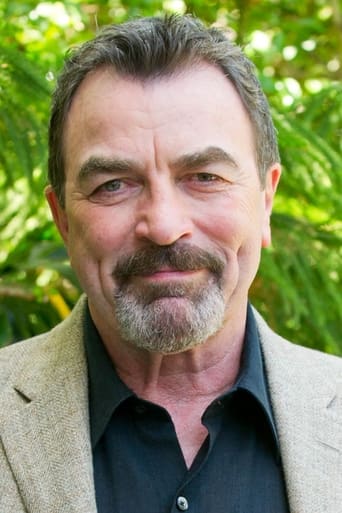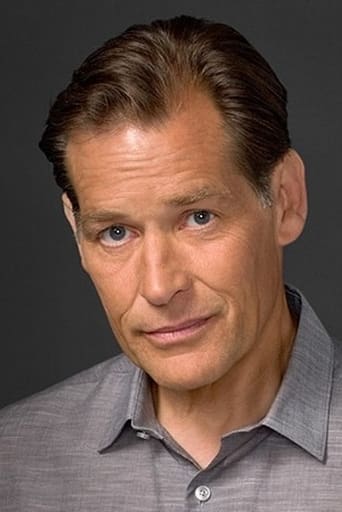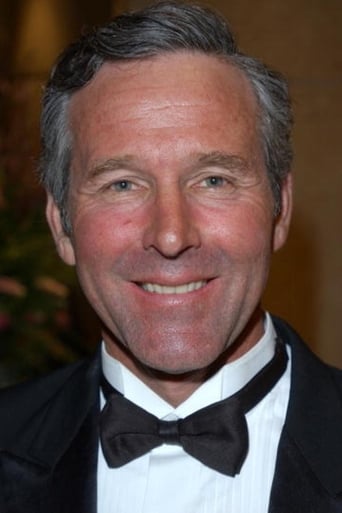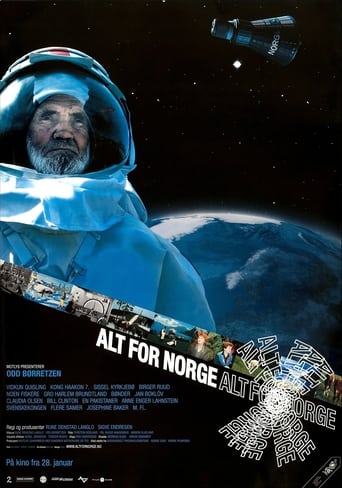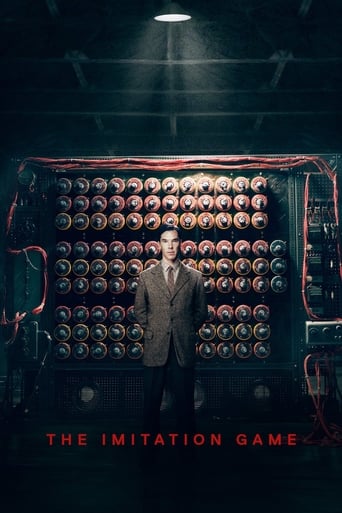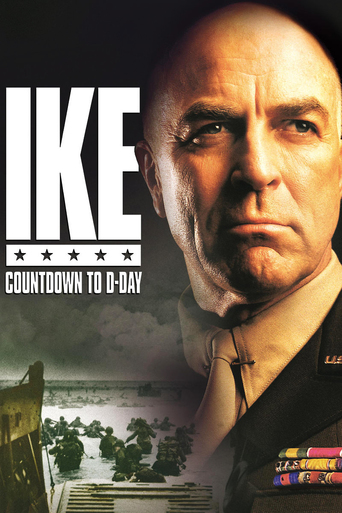
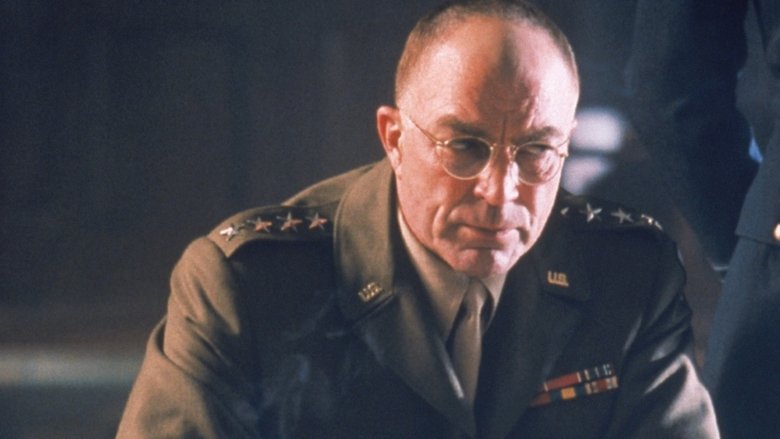
Ike: Countdown to D-Day (2004)
The story of the senior-level preparations for the D-Day invasion on June 6, 1944 from the time of Dwight D. Eisenhower's appointment as the Supreme Allied Commander in Europe, to the establishment of the beachhead in Normandy.
Watch Trailer
Cast
Similar titles


Reviews
Wonderful Movie
Very very predictable, including the post credit scene !!!
Slow pace in the most part of the movie.
Good films always raise compelling questions, whether the format is fiction or documentary fact.
Great to see Selleck has much more acting depth than the male cheesecake Magnum PI show (fun as it was).This IKE TV episode shows up on video racks and has gotten lots of praise. I plan to show it to my son who is upset that he has to report on President Eisenhower...(maybe he will see how cool E. was!!!) Yeah, the spoiler is...Ike decides to invade on June 6! What of the "marriage" between Hitler-Stalin??? It's a FORGOTTEN but potentially dangerous part of early World War 2 where Hitler and Stalin had a formal ALLIANCE! August 1939- to June 1941 when Hitler BROKE the pact and attacked the Soviets!!! Wonder what the Allies thought of that SCARY alliance of two major powers? Sorta like the Super Left Socialist "marries" the Super Right Socialist...Amazing concentration of power. Fortunately, this evil union broke up when Hitler "broke his vows" of nonaggression to Stalin.
In The Longest Day (1962), Hollywood saluted heavily the Fighting French. Perhaps too heavily, but without feeding resentments. Ike : Countdown to D-Day (2004) depicted France as the spoiled nation that was NOT fighting against Nazism.It begins by a weird omission.General Eisenhower is rebuking General Patton for having declared that the Anglo-Saxons will rule the post-war World. (The two men reported different versions of this moment. The filmmakers could only write a plausible conversation.) Eisenhower (Tom Selleck) says to Patton (Gerald McRaney) : "The Czechs are also in this war. And the Dutch and the Danes, and God knows who else." Let's examine various facts. Patton had attended the Cavalry School in France in the 1920's; he spoke French, and Eisenhower, who knew Patton personally, could easily presume his former mentor is not badly disposed towards the French in general. Eisenhower, who is preparing to send troops to fight on French beaches, is also informed, like very few man, of the action of the French Resistance (a Resistance that is ultimately successful and helpful in 1944 after years of desperate ineffectiveness). "God knows who else" ? It would have been so natural for the true Eisenhower to include "the French" in his enumeration while speaking to the true Patton. The unlucky destiny of the Danes, the Dutch and the French was similar, although the number of French soldiers killed in the war is about 11 times the total number of deaths among Danish, Dutch and Czech soldiers. It's unlikely Eisenhower didn't mention also the French, especially when the issue is the possible reaction about Patton's statement. But let's make the best of it. A tribute to the Fighting Czechs, Fighting Danes and Fighting Dutch cannot be understood as a minimization of the merit of North American and British troops who fought in Europe.Then arrived a disdainful remark.At a moment in May 1944, in Eisenhower's Headquarters, top rank officers are viewing a movie made by the Red Army about the surrender of the German 17th Army, in Crimea, in May 1944. The documentary is completed by a minimal narration.While viewing tanks in Russia, General Montgomery (Bruce Philips) loudly suggests to rethink the strategy. Eisenhower, the supreme commander, seated in the row behind Montgomery, barely budges. But when Montgomery adds, very seriously : "And we'll have the French to help us along", we see Eisenhower with strongly knitted brows, and American General Bradley (James Remar), beside Montgomery, is visibly upset when he turns back to look at his friend Eisenhower. Immediately after this, other images are projected. The narrator is then telling that those images come from a smuggled unedited film from the Warsaw Ghetto Uprisings, and the narrator adds "the ghetto resisted six weeks to an entire German Army". Right after those images of skinny human beings and the narrator's comment on their long resistance, General Smith (Timothy Bottoms), Eisenhower's Chief of staff, behind Bradley, shouts : "Twice as long as the well fed French Army in 1940. Don't count on them to help us along." The audience of officers in the dark room laughs, except Montgomery.This striking sequence of images from Warsaw Ghetto and General Smith's remark cannot be accidental. But is it relevant in a movie on the last weeks before D-Day ? The main fighting of the Warsaw Ghetto Uprising lasted from April 19th to May 16th, 1943. Did Eisenhower and his staff view a documentary movie on the Warsaw Ghetto Uprising nearly A FULL YEAR AFTER the Uprising ? If so, did the Chief of staff, on the eve of a landing in France, actually jump on an opportunity like that movie on Warsaw Ghetto martyrdom to blast the French Army ? "Twice as long as the well fed French Army in 1940. Don't count on them to help us along." What if somebody added : "Sir, the French Army was as well fed in 1939-40 as the American Navy was in Hawaii in December 1941, although rather busier on the weekends. Should Poland thank the Japanese because America finally started to cross swords with the Germans. " Entertaining joke, isn't it ? Although the entire cast in the drama is credible, convincing, let's notice how the dialog later in the drama makes the characters strangely flimsy for a short moment.General Montgomery is heavily depicted in the movie as a man disconnected from reality. For instance, later in the movie, we see Montgomery being probably the last British officer to expect he could enforce a no-smoking rule in a room where his boss Churchill, a famous heavy smoker, is about to enter.After Smith's remark on the French Army, a remark supposedly made as late as 1944, the romantic Montgomery depicted in the movie should have claimed the British Army fought against the German Forces in 1940 without more success than the French Army.Moreover, Free French soldiers led by General Koenig fought beside the British against Vichy French in Syria in 1941 and against Afrikakorps in Libya in June 1942. When the Anglo-Saxons fought the Germans in Tunisia between February and May 1943, they were helped by Free French troops led by General Leclerc, who had fought in the Sahara as early as 1941. Free French troops also fought against the Germans in September 1943 in Corsica, for instance. In May 1944, Bradley, Smith and Eisenhower were as well aware of those facts as Montgomery.But don't count on this movie for fairness.Instead, we hear Montgomery complaining about indiscipline from Smith, and it's easy for Eisenhower to tell Montgomery that he himself was the first officer to break the discipline with his comment on the strategy. So Montgomery shuts up, for once. Following that, Eisenhower tells Smith he loved his so-called reply to Montgomery. This line isn't from the solemn Eisenhower who, in the same drama, pronounced the word "racialism" when rebuking Patton about Anglo-Saxons' superiority. Too bad.
There are no combat scenes in this wartime drama, yet it offers a compelling portrait of Ike and a gripping depiction of all the strategy meetings involved in the Allied landing in Normandy. I'm one of the few who has not yet seen Saving Private Ryan, and think this might be a useful movie to have watched first. The film chronicles the complicated planning meetings during the three month build up to D-Day, the operation masterfully orchestrated by the American General Dwight D. Eisenhower in his position as Supreme Commander of the Allied Expeditionary Force. Tom Selleck is positively brilliant in his portrayal of Ike. Like every other viewer, I knew what the real Eisenhower looked like but while watching this movie, I didn't see Tom Selleck or Magnum. I saw Ike. The movie gives a moving portrait of this confident and decisive but not egotistical general. Fortunately, it avoids any depiction of an alleged romantic affair with his chauffeur Sommersby, best not to cast needless aspersions. It especially provides a touching glimpse into this leader's inner turmoil, secret doubts, and emotional anguish at sending soldiers into a dangerous battle bound to involve high Allied casualties. The battle depicted in this film is truly Eisenhower's inner one.The most wrenching scene is definitely the one in which Eisenhower himself visits the paratroopers on the eve of the landing. As this group is expected to suffer especially high casualties, he realizes that he is undoubtedly sending many of them off to their deaths. However, given the dire wartime situation, he realizes he has no choice. His unpretentious friendliness with these paratroopers is touching as he tries to put them at ease, shares a cigarette with them, and shows genuine interest in their personal lives...uncharacteristic of a military commander in his position.The inner squabbling between the generals is also interesting, the various egos of those who disagree on strategy. It's obvious why there needs to be one leader with the final word! Ike exhibits both able tactical strategy but also admirable people skills, dealing respectfully with both the political leaders and the other generals, seeking their opinions, but unafraid to ultimately insist on his chosen course of action. Generals Montgomery, Patton, and Bradley are all highly involved in the planning operation. I'm no expert on the historical accuracy about any of these generals, so will leave such commentary to others better informed.Charles DeGaulle is certainly cast as an irritating, unsympathetic, and uncooperative obstacle to the Allies' plans, though some have commented that this depiction is inaccurate. Hopefully. While I hesitate to disparage the dead, he comes across as quite despicable here. Churchill is also shown of course, behaving very Churchillian!The planning operation of Operation Overlord makes a riveting story. I was especially taken with the operation's total dependence on the weather reports near the target date. The pressure must certainly have been on these meteorologists to get their forecast right! Sellick brought to life an historical figure I had previously really never thought much of, though Eisenhower must have been regarded quite heroically in public opinion for him so have gained such an endearing nickname. I hope his portrayal in this movie is accurate, because I would like to believe that Ike actually was in real life the very capable but unpretentious and compassionate man of integrity depicted here.
Not badly done, this story of the way Dwight D. Eisenhower managed to pull off the risky Normandy landings in 1944. It shows its low TV budget but I suppose we can do without still another majestic spectacle and settle for a little more in the way of a character study.Tom Selleck as Ike is surprisingly good. He's an unpretentious and likable guy, a hunk to women maybe but he seems to be accessible as a buddy too. That cracked voice maybe.Here he shrugs off his lackadaisical Magnum P. I. persona and does quite a good job of being Eisenhower, more adaptable than anyone might have thought. He's put on a few pounds for the role, had the hair shaved off his frontal area, and deepened his voice. There's another thing too. Eisenhower smoked like a volcano, and this is shown in the movie. He's constantly puffing away, as are many of the other characters. Smoking cigarettes wasn't the stigma then that it has now become. Butts were in your package of K rations, along with all-American chewing gum. The writers and producers were right to leave out some of Ike's pecadillos, like his affair with his aide, Kay Sommersby. There's no room for romance in this compact drama. But the smoking belongs. It's even used as a gag at Montgomery's expense, which I won't explain. It would have been tempting to drop all the cigarettes from the film and make it more PC. The film makers ought to be complimented on retaining them. The script of course doesn't give him any flaws. He's the hero after all. He never loses his temper. He doesn't browbeat anyone. Well, he DOES let his weather man, Stagg, have a couple of powerful jabs. He has doubts about the invasion schedule but not about himself. We see him doing one of the things Ike did best. He managed to pull together a team of disputatious colleagues and subordinates who were jealous of one another. (He did the same thing as president; he was like your nice uncle.) Every story has to have some sort of obstructionist. In this one it's Charles DeGaulle, who disapproves of Ike's plan and refuses to cooperate with the landings -- something that didn't happen in real life. He and Ike have an argument about who should make the announcement of the landings. It's left unresolved, an editorial imperfection. DeGaulle wasn't easy to work with. Winston Churchill remarked of him, "The heaviest cross I have to bear is the Cross of Lorraine." Selleck gets good support from the rest of the cast, whom we get to know fairly well. Especially neat is General Omar Bradley, even less pretentious than Ike. (Bradley is played by James Remar, whose name sounds as if it ought to mean something when spelled backwards, but it doesn't.) Man, you have to put these guys next to the pompous, prop-carrying MacArthur and his florid prose to appreciate their humility. Ike went on after the war to serve as president of Columbia University and was later elected president of the US for two terms. He was no more colorful as a politician than as a general, but he took us through eight years of the worst part of the Cold War, finally brought an end to the Korean conflict, and foresaw the rise of what he called "the military-industrial complex." A decent guy, and this is a pretty decent movie about a couple of extremely tense days in his life.
